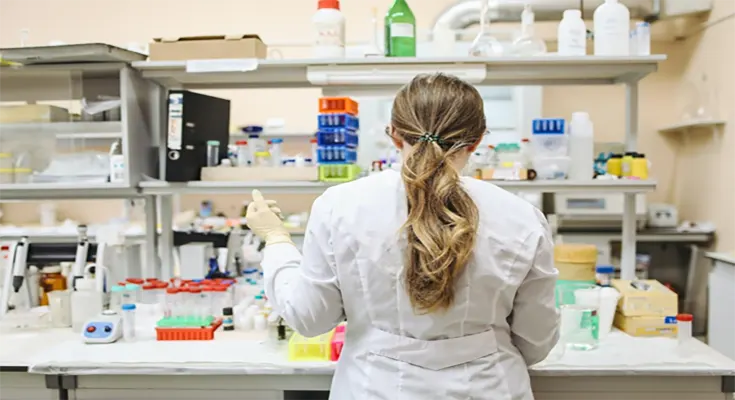Industrial pharmacy in Indonesia has undergone significant evolution over the past decades. As the country continues to develop its pharmaceutical industry, industrial pharmacy plays a crucial role in advancing healthcare by ensuring the quality, safety, and efficacy of medications. This article delves into the current state of industrial pharmacy in Indonesia, its challenges, and its future prospects. Visit pafikotabantul.org
Historical Context
The pharmaceutical industry in Indonesia began to take shape in the early 20th century, with the establishment of local drug manufacturers and importers. However, it was not until the 1980s and 1990s that the industry began to expand rapidly, driven by increased demand for healthcare products and government support for the local manufacturing sector. Industrial pharmacy, as a discipline, emerged as a key component in this growth, focusing on the development and production of pharmaceuticals at an industrial scale.
Current Landscape
- Growth and Development
Indonesia’s pharmaceutical industry has seen considerable growth, with a notable increase in the number of domestic pharmaceutical companies. These companies range from large multinational corporations to small and medium-sized enterprises (SMEs). The industry is characterized by its diverse range of products, including prescription medications, over-the-counter drugs, and traditional herbal medicines.
The government has been instrumental in this growth, implementing policies to support the local pharmaceutical industry. The National Agency of Drug and Food Control (BPOM) oversees the regulation and supervision of pharmaceuticals, ensuring that products meet safety and efficacy standards. Additionally, initiatives such as the National Health Insurance (JKN) program have expanded access to medications, further boosting demand.
- Quality Control and Regulation
One of the core functions of industrial pharmacy is ensuring that pharmaceuticals are manufactured to high standards of quality. In Indonesia, this involves adherence to Good Manufacturing Practices (GMP), which are enforced by BPOM. GMP guidelines cover various aspects of the manufacturing process, including raw material quality, production techniques, and packaging.
The emphasis on quality control is crucial for maintaining public trust in pharmaceutical products. Regular inspections and audits by BPOM help to identify and address any issues that may arise during production. Additionally, many Indonesian pharmaceutical companies have sought international certifications, such as ISO 9001, to further demonstrate their commitment to quality.
- Innovation and Research
The Indonesian pharmaceutical industry has made strides in innovation and research. Pharmaceutical companies are increasingly investing in research and development (R&D) to develop new drugs and improve existing formulations. Collaboration with academic institutions and research organizations has become more common, fostering a culture of innovation.
Additionally, there is a growing interest in biopharmaceuticals and biotechnology. The development of biologic drugs, such as monoclonal antibodies and vaccines, represents a significant advancement in the industry. Local companies are exploring these areas to address both domestic and international healthcare needs.
Challenges
- Regulatory Hurdles
While the regulatory framework in Indonesia supports the growth of the pharmaceutical industry, it also presents challenges. The regulatory environment can be complex and time-consuming, with varying requirements for different types of products. Companies often face delays in obtaining approvals and navigating the regulatory landscape.
Furthermore, the need to comply with both national and international regulations can be a burden for smaller companies. Streamlining regulatory processes and providing clear guidelines can help mitigate these challenges and support industry growth.
- Raw Material Supply
The availability and cost of raw materials are critical factors in pharmaceutical manufacturing. Indonesia relies on imported raw materials for many pharmaceutical products, which can lead to supply chain disruptions and cost fluctuations. Developing local sources of raw materials and investing in supply chain management are essential for ensuring a stable and cost-effective production process.
- Market Competition
The pharmaceutical market in Indonesia is highly competitive, with numerous domestic and international players. Companies must continually innovate and improve their products to maintain a competitive edge. Additionally, the rise of generic drugs has intensified competition, particularly in the pricing of pharmaceuticals.
Future Prospects
- Expansion of Local Production
There is a growing focus on expanding local production capabilities to reduce reliance on imported pharmaceuticals. The Indonesian government has encouraged investments in pharmaceutical manufacturing facilities and infrastructure. This includes supporting the development of state-of-the-art production facilities and promoting technology transfer.
- Emphasis on Biotechnology
Biotechnology is expected to play a significant role in the future of industrial pharmacy in Indonesia. The development of biopharmaceuticals and advanced therapies offers new opportunities for addressing complex health conditions. Investments in biotech research and development are likely to increase, contributing to the growth of the industry.
- Collaboration and Partnerships
Collaborations between pharmaceutical companies, research institutions, and government agencies will be crucial for advancing industrial pharmacy. Public-private partnerships can facilitate research, enhance regulatory processes, and support the development of innovative therapies. Strengthening these collaborations will help drive the industry forward and improve healthcare outcomes.
- Digital Transformation
Digital technologies are increasingly being integrated into pharmaceutical manufacturing processes. Automation, data analytics, and artificial intelligence are transforming how drugs are developed, produced, and distributed. Embracing these technologies can improve efficiency, reduce costs, and enhance product quality.
Conclusion
Industrial pharmacy in Indonesia is a dynamic and evolving field, marked by significant growth and development. While challenges remain, the industry is well-positioned to continue its progress, driven by innovation, government support, and strategic investments. As Indonesia’s pharmaceutical sector continues to expand, industrial pharmacy will play a pivotal role in ensuring the availability of safe and effective medications for the population. The future of industrial pharmacy in Indonesia holds promise, with opportunities for growth in local production, biotechnology, and digital transformation.

